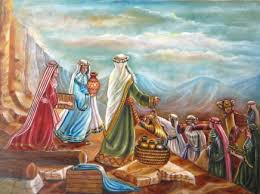 With the start of the Olympics this week, there is a lot of talk about GOLD. Sure, winning silver and bronze is better than no medal at all, but GOLD is the ultimate triumph.
With the start of the Olympics this week, there is a lot of talk about GOLD. Sure, winning silver and bronze is better than no medal at all, but GOLD is the ultimate triumph.
In this week’s parashah, Terumah, the Israelites are commanded to donate the materials for building the Mishkan, or Tabernacle, a temporary and portable sacred space for worshiping God.
Speak to the Children of Israel and they shall take to Me a portion from every man whose heart will motivate him you shall take My portion. This is the portion that you shall take from them: gold, and silver and copper.
In addition to these metals, the Israelites donated wool, wood, oil, spices and stones. How much each person donated was dependent on what they wished to give. As the text says, “whose heart will motivate him.” Everyone had to contribute something, but how much was voluntary.
Since they were building a holy space for worship, a dwelling place for God, should not the entire structure and all its components be made from the ultimate of materials – everything in gold? What can we learn from the different kinds and grades of material the Israelites were asked to contribute to the construction?
Just as the people were asked to donate what felt comfortable to them, a place to be with God should feel comfortable to everyone. The Mishkan represented a community space to worship God and seek guidance and protection. By including a variety of materials, the diversity of the community could feel represented. A structure all in gold may have felt “too fancy” or “too holy” or “too exclusive” for some individuals.
Whether gold, silver or bronze, each individual has a unique contribution to make, and each contribution is essential to the achievements of the larger community. Not everyone is capable of striving for gold. The materials of the Mishkan teach us that for God, they are equally valuable.
Wishing you a safe, happy, and restful February break.
Shabbat Shalom



